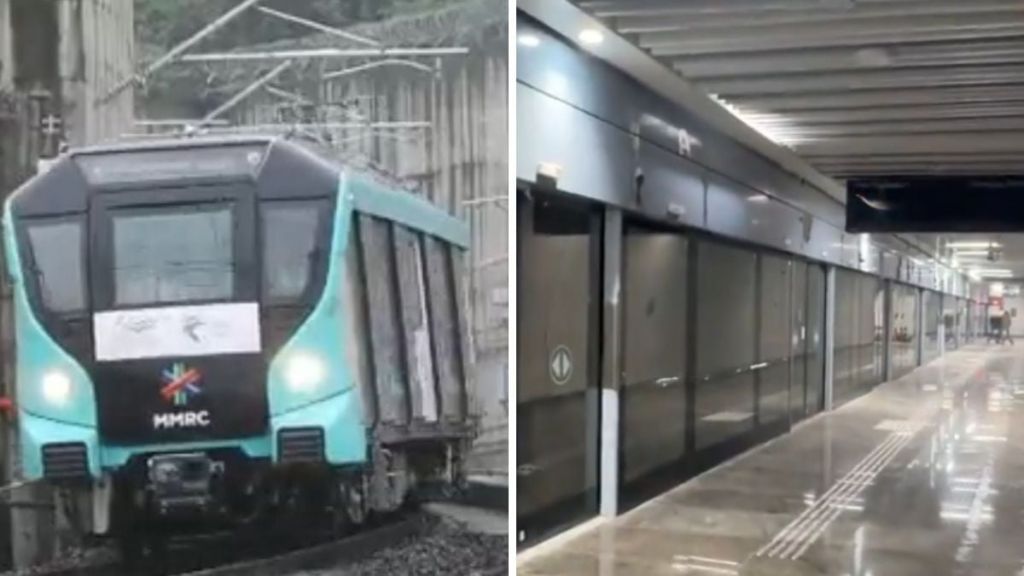
Mumbai: The Mumbai Metro Rail Corporation (MMRC) is preparing to launch another significant phase of the Metro 3 network by March 2025, introducing metro connectivity to Mumbai's island city. This phase will extend services to Acharya Atre Chowk station in Worli, covering six key stations: Dharavi, Shitladevi, Dadar, Siddhivinayak, Worli and Acharya Atre Chowk.
These stations are situated in vital urban hubs, home to educational institutions, religious landmarks, corporate offices, and bustling commercial zones. The extension aims to enhance public transportation accessibility in these high-density areas, providing a much-needed boost to Mumbai's transit infrastructure.
Ms. @AshwiniBhide MD, MMRC accompanied by Mr. @SubodhGupta_ Director, (Projects), Mr. Rajeev, Director (Systems) and other senior officials of #MMRC reviewed progress of the balance works at #Worli #AcharyaAtreChowk & #Dadar stations today.#ProgressUpdate… pic.twitter.com/xT1dRn7Bg0
— MumbaiMetro3 (@MumbaiMetro3) December 11, 2024
Details On Project's Progress
S K Gupta, MMRC's director of projects, stated, "We are planning to open this 9.7 km section by March 2025. Track-laying and Overhead Catenary System (OHE) works are complete, and the remaining architectural and signaling installations will be finalized soon." Trial runs have already commenced, with trains operational in both directions at Acharya Atre Chowk station to gather data for software updates, as reported by the Times of India.
To ensure the timely launch, MMRC is preparing to submit an application to the Commissioner of Metro Rail Safety (CMRS) for final approval. This process is expected to move swiftly since the rolling stock was cleared during Phase I trials for the Aarey-JVLR-BKC section. MMRC is also finalising operational details, such as train deployment and service schedules, for the new phase.
The first phase of Metro 3, which began operations on October 5, 2024, records a daily ridership of approximately 22,000 passengers. With the new extension, this figure is expected to rise substantially as the metro reaches more densely populated areas.
Meanwhile, Maharashtra Chief Minister Devendra Fadnavis announced during the Legislative Council session that the next segment, connecting BKC to Colaba, is slated to open by May 2025.

Metro 3 spans a 33.5-kilometre underground corridor along the Colaba-Bandra-SEEPZ route, featuring 27 stations, of which 26 are underground and one is at grade. This project represents a major step toward modernizing Mumbai's public transportation network and easing the city’s traffic congestion.